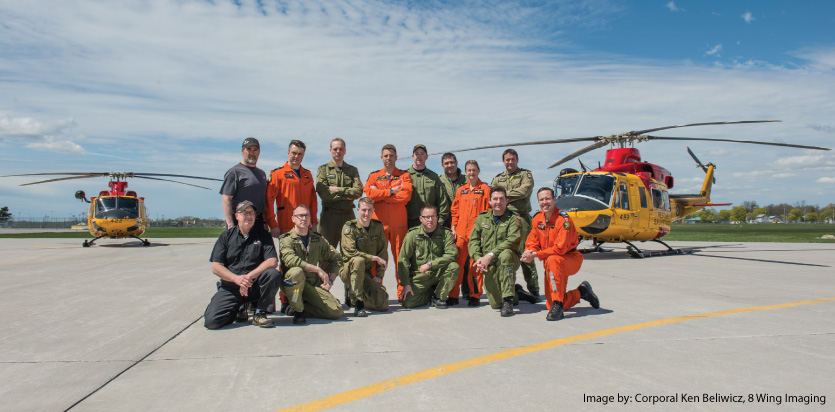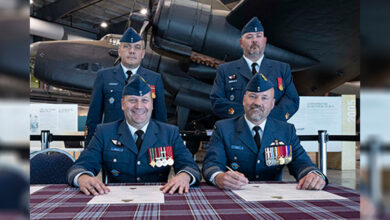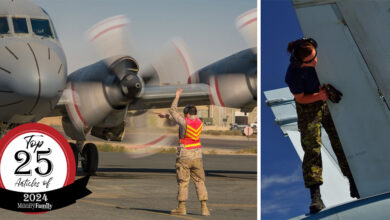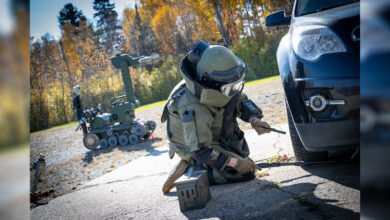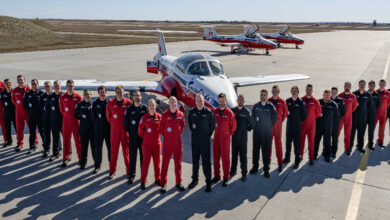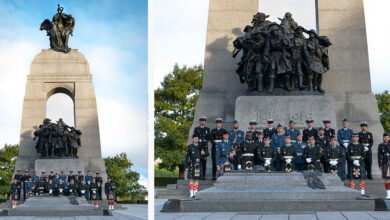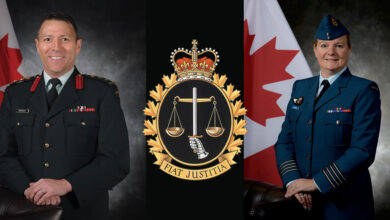Duty CallsUncategorized
SAR Techs spend night in Algonquin Park due to rescue mission
In early May, a fifty-year-old man who had injured his back after a perilous fall on a remote island of Algonquin Park received lifesaving treatment and was taken to safety thanks to the heroic efforts of members of 424 Transport and Rescue Squadron.
Joint Rescue Coordination Centre Trenton was called into action on May 8 to help the Ontario Provincial Police with a medical evacuation in Algonquin Park. The patient had not only injured his back but was also having difficulty breathing.
A Griffon crew from 424 Transport and Rescue Squadron, based out of CFB Trenton, was tasked with the mission.
The crew of the Griffon helicopter faced a multitude of challenges on the mission, including weather and fuelling. With only enough fuel to travel to Algonquin, insert the Search and Rescue Technicians (SAR Techs), and travel to the nearest gas stop or hospital, the Griffon crew had a very tight window to work with.
This tight window was further exaggerated when the crew discovered there was no appropriate landing space on the island for the helicopter because of a heavy tree cover.
To make matters worse, the crew was also faced with snow showers and wintery weather conditions.
However, the SAR Techs and Griffon pilots forged on with their lifesaving mission. As the helicopter hovered above the island, Warrant Officer Aaron Bygrove, the lead SAR Tech on the mission, hoisted the necessary equipment to the island while MCpl. Eve Boyce was lowered through the trees to assess the patient. Boyce was able to stabilize the patient’s breathing.
Meanwhile, the weather continued to deteriorate and, as there was no place for the helicopter to land, the Griffon crew decided to travel to the nearest fueling station. The plan was for the helicopter to return immediately after refueling.
As they awaited the return of the helicopter, Boyce continued to remain with the patient while Bygrove worked on clearing trees to create small space in the tree canopy to allow the patient and SAR Techs to be safely hoisted back into the helicopter.
Unfortunately, the helicopter was unable to make it to the fuelling stop because of the weather and had to find a location to land, and consequently the helicopter was iced over, and the SAR Techs and patient were forced to remain at the park overnight.
“We prepared ourselves to monitor the patient throughout the night,” said Bygrove.
For SAR Techs, including the ones on this mission, it is commonplace for a mission to take several days and not have a proper return date for their families.
“Leaving that day you don’t know if you’re going to be back that night, the next morning, a few days later. We may be searching for an extended period of time, or even left on the ground to care for a patient, waiting out the weather for extraction. We call it a frequent, no-notice, short-term, deployment,” explained Bygrove.
Thankfully, Bygrove, Boyce and the patient were extracted the next morning by a second helicopter deployed from CFB Trenton.
The SAR Techs were then able to fly the patient to Pembroke Regional Hospital to receive further medical attention.
“It’s amazing to be able to directly help Canadians.
“SAR Techs, we’re very proud of the service we provide to Canadians and the job that we do in service of our country,” said Bygrove.


